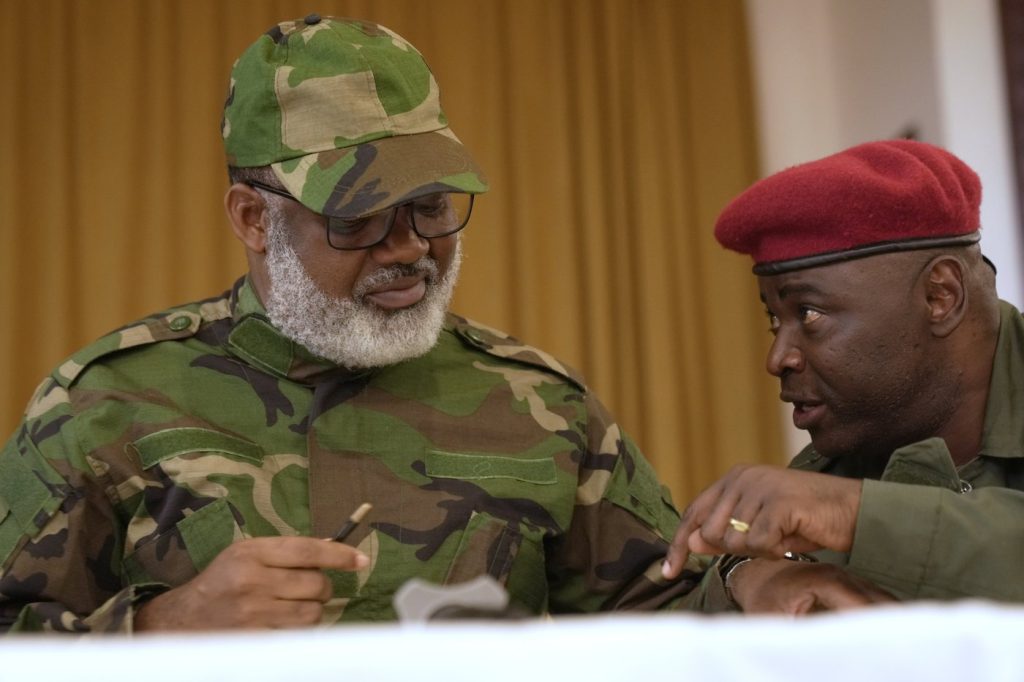KAMPALA, Uganda (AP) – Following the recent takeover of Goma, the largest city in eastern Congo, by Rwanda-backed M23 rebels, a new leader has emerged from the shadows: Corneille Nangaa. Unlike the group's long-time military leader, Sultani Makenga, Nangaa, who appeared in military fatigues, seeks to present a more inclusive and Congolese image of the M23. Analysts note that this shift aims to reframe M23 from an ethnic Tutsi-dominated group into a force advocating for broader Congolese nationalism, despite its military backing from Rwanda.
Nangaa, previously the head of Congo's electoral body, oversaw the controversial 2018 presidential election that resulted in President Félix Tshisekedi's victory. His tenure was marred by accusations of undermining democracy, leading to U.S. sanctions in 2019. After a falling out with Congolese authorities, particularly over a mining concession, Nangaa went into exile. In 2023, he joined the Congo River Alliance, a coalition of 17 parties and rebel groups opposing Tshisekedi’s regime, positioning himself as a prominent political figure.
His grievances with the government extend beyond mining issues to alleged neglect, with political scientist Christian Moleka suggesting that Nangaa's sentiment of having been wronged contributed to his radicalization. Upon joining M23, he has led the coalition towards a more formidable presence in the region, transforming it into a force with a defined national agenda.
The M23 is now perceived as a greater threat than in its previous campaigns, as they actively seek to associate their cause with local grievances and broader national discussions about autonomy in eastern Congo. As Angelo Izama, an analyst with the Fanaka Kwawote think tank, indicates, the rebels aim to provoke discourse on regional neglect while expanding their territorial control to force the Congolese state to negotiate.
The Crisis Group think tank highlights that M23's alliance with Nangaa's Congo River Alliance has allowed the group to gather resources and allies, making them attractive to other armed factions and discontented political entities seeking to undermining Tshisekedi’s government. This strategy aligns with Rwanda’s interests, as maintaining a powerful Congolese front bolsters their influence over North Kivu province.
United Nations experts claim that approximately 4,000 Rwandan troops are backing the M23 rebels in North Kivu, facilitating the group’s recent successes against Congolese government forces, local militias, and international peacekeepers. With an estimated 6,500 fighters, M23, originally formed in 2012, has swiftly regained strength since its initial defeat, emerging once again as a dominant player in the ongoing conflicts within the mineral-rich region.
Nangaa's rise is politically motivated, offering a face that is not Tutsi, which allows M23 to shed its prior identity as a Rwanda-centric group and instead appeal as a defender of varied Congolese interests. The Washington-based Africa Center for Strategic Studies points to this alteration in strategy aimed at consolidating control over mineral wealth, estimated at $24 trillion, vital for global technology.
During a recent press conference, Nangaa affirmed M23's presence in Goma, expressing ambitions to establish a new administration while addressing the challenges posed by displacements in the city of 2 million. He asserted, “We are here in Goma to stay as Congolese. We will continue the march for liberation all the way to Kinshasa.” The statement underscores a determined and aggressive outlook for M23 as it aims to challenge the current governmental structure and assert influence across the Congolese landscape.










